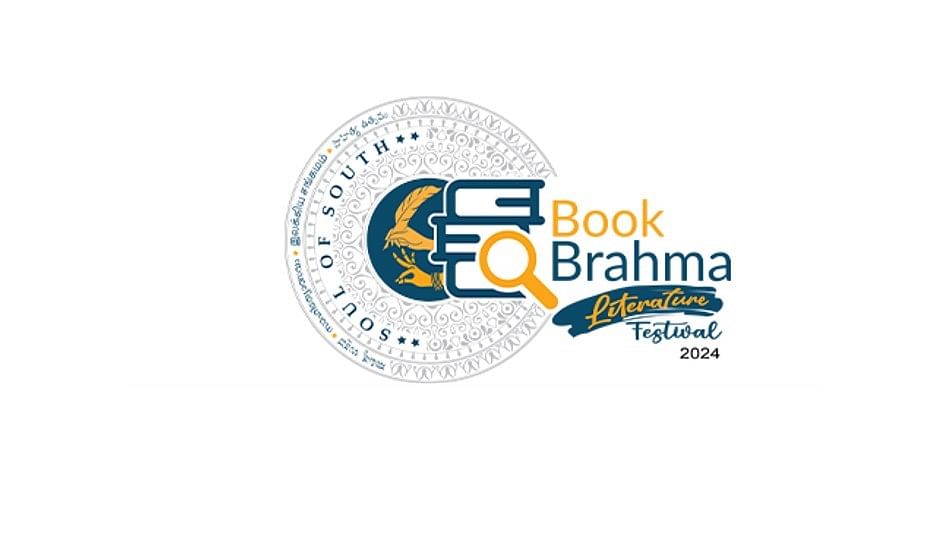
Book Brahma Literature Festival logo.
Credit: Book Brahma Literature Festival website.
Bengaluru, DHNS: Literature buffs in the city are in for a three-day treat, with the Book Brahma Literature Festival 2024 ‘Soul of South’ inaugurating on Friday (August 9).
Marrying poetry and storytelling with art and music, the festival will hold detailed discussions dissecting various concepts of past, present, and future trends of South Indian languages and literature, in what is considered the first such dedicated festival for South Indian languages.
In festival director Satish Chapparike’s words, this is an attempt to “bring everyone together and create a vibrant platform to discuss, converse and bond”.
Throwing open the festival, the inaugural session Tenkana Nudi Kaudi explored the diversity within South Indian languages and the contemporary ideas emerging from them, juxtaposed with their similarities by way of Dravidian roots tying their concepts and vocabularies together.
Malayalam modern poetry pioneer K Satchidanandan lauded the shared roots despite differences among South Indian languages, expressing hope that such festivals will include and represent lesser-focused and tribal languages found in the region, “making invisible people visible”.
Echoing his statements, Kannada H S Shivaprakash drew a thread of commonality, highlighting how rich poetic history, although different in each language, followed a pattern through the ages.
Sharing an anecdotal experience, bilingual writer and critic B Jeyamohan called the experience of being multilingual in life and art was a very unique South Indian phenomenon. “We have become one cultural area with shared roots. We belong to a single cultural nation,” he said.
He highlighted how postmodern trends and Dalit writing in Tamil are vanishing, noting with despair that newer writers cover “micro-level issues with a micro aesthetic style of literature”, with simple stories without much historical context.
Vivek Shanbhag, novelist and playwright, highlighted challenges posed by globalisation and disruptive technology, which has changed the relationship between life and art and pushed people into digital ghettos and echo chambers, a challenge connecting seemingly different languages in the South.
“This is a challenge we must all confront and grapple with. It is leading to a rise of the right and a drive towards consumerism across the world,” he said, noting that while a conflict between cities and villages is a constant theme in Kannada literature, the discourse on politics and philosophy is not occurring as well as it should.
Telugu poet Volga noted that there must be a greater focus on building bridges between languages, especially in the context of Telugu literature and inter-language translations.
“We must discuss why translations are not happening as well in South India. Will this be possible? I hope such forums will bring forth councils to encourage inter-Dravidian language translations,” she said.
The festival is on till August 11.